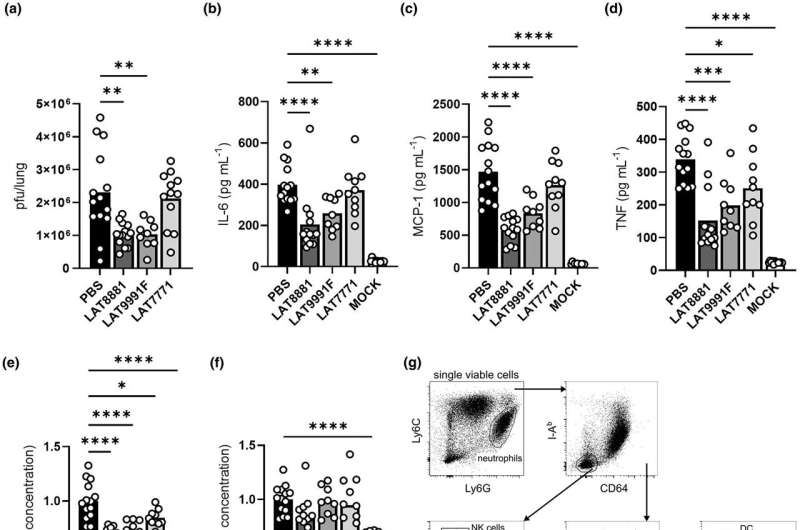
The discovery of a new class of host-targeted therapy could give the medical profession a much-needed new flu treatment option for serious infections.
A pre-clinical study at Hudson Institute of Medical Research has identified a new class of compounds, derived from a protein that naturally exists in our body which, when inhaled, limit the ability of influenza virus to replicate in the lung, and protect against damaging inflammation.
Associate Professor Michelle Tate led a team from Hudson Institute and Melbourne-based Lateral Pharma Pty Ltd, whose findings have been published in the journal Clinical & Translational Immunology.
“The human body uses inflammation in many positive ways, to keep us healthy,” Tate said. “But when inflammation goes into overdrive it can get out of control and cause enormous damage, particularly to delicate organs such as the lungs.”
No current treatments for severe flu
There are currently no effective treatments available for severe influenza virus infection. Each year in Australia, influenza infection results in hundreds of deaths and thousands of hospitalizations.
“Unlike current antiviral influenza drugs, which target the virus itself, these compounds act directly on the cells in the lung,” she said.
As the therapeutic acts directly on the host cells, it is less likely that influenza virus variants will develop resistance to this treatment. An extra bonus is that this new therapy is naturally derived from a protein our body makes.
Treatment fine-tunes inflammatory response
“The search is always on for treatment options that can fine-tune the inflammatory response, to strike a balance between inflammation which can be protective or damaging,” Tate said.
COVID-19 has shown us the damage that can be done by out-of-control inflammation, and Tate says it’s a similar story for flu.
“We urgently need new drugs for influenza and emerging respiratory viruses. These results support the potential for Lateral’s novel compounds to help patients with severe respiratory disease,” Lateral Pharma said.
Hudson Institute of Medical Research

